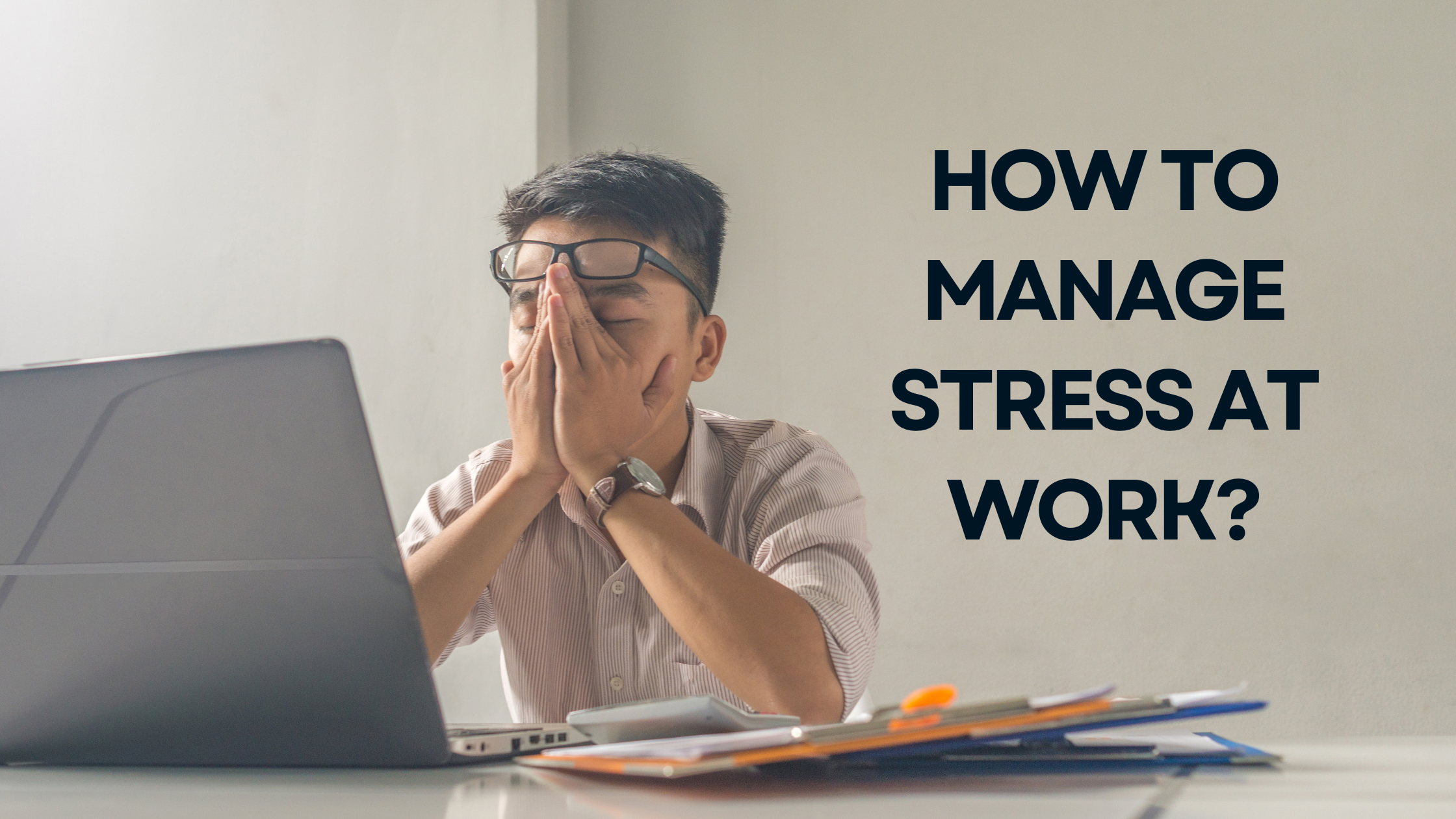How to Manage Stress at Work: In the fast-changing and demanding world of today, job stress has become an all-too-common companion for many people. The tension in meeting deadlines, handling challenging tasks, and maintaining a work-life balance can usually take a toll on one’s mental and physical well-being. However, it’s necessary to recognize that stress is a natural part of any job, and managing it effectively is important for long-term success and overall happiness. So, in this article, we will talk about different methods to deal with job stress and create a more balanced and fulfilling professional life.
Also Read:
How to Manage Stress at Work
Self-awareness and Mindfulness
The first step in handling job stress is self-awareness. Understanding your triggers, identifying when stress is building up, and recognizing your emotional and physical reactions are key elements of self-awareness. Mindfulness techniques, such as meditation and deep breathing exercises, can be valuable in developing self-awareness. Taking a few moments each day to center yourself can greatly reduce stress levels and enhance your ability to deal with workplace challenges.
Effective Time Management
Poor time management is a significant supporter of job stress. Learning to prioritize tasks, set realistic deadlines, and break larger projects into manageable steps can help create a more managed and less stressful work environment. Tools like to-do lists, calendars, and project management apps can be instrumental in enhancing time management skills. By setting a clear plan of action, you can diminish the feeling of being overpowered and increase your overall productivity.
Establishing Boundaries
In today’s world, it’s highly challenging to disconnect from work. However, setting clear boundaries between work and personal life is important for managing stress. Avoid checking work emails or taking business calls during non-work hours. Set specific times for work-related activities and stick to them as much as possible. By creating a clear separation between work and personal time, you allow yourself to restore and maintain a healthier work-life balance.
Regular Physical Exercise
Physical activity is a confirmed stress reducer. Regular exercise releases endorphins, the body’s natural mood elevators, and boosts overall well-being. Whether it’s a daily jog, a yoga session, or hitting the gym, finding a form of exercise that you enjoy and can integrate into your routine is important. Physical activity not only helps handle stress but also contributes to improved energy levels and enhanced concentration, both of which are invaluable assets in a demanding work environment.
Healthy Lifestyle Choices
In addition to exercise, keeping a healthy lifestyle can have a significant impact on your ability to deal with job stress. Good sleep, a balanced diet, and hydration are essential components of overall well-being. It’s easy to undervalue the importance of these basic factors, but they play a vital role in keeping your body’s ability to handle stress. By following a healthy lifestyle, you empower yourself to face workplace challenges with strength and power.
Effective Communication
Miscommunication and unresolved conflicts at the workplace can contribute greatly to job stress. Formulating strong communication skills can help control misunderstandings and promote positive working relationships. Be open and honest in your communication, express your problems and expectations clearly, and actively listen to your coworkers. By setting effective communication channels, you create a supportive work environment that relieves stress and encourages teamwork.
Learn to Say No
One common source of job stress is the inability to say no. It’s important to identify your limits and not overcommit yourself. Taking on too many commitments can lead to burnout and increased stress levels. Learn to prioritize tasks and politely say no to additional work when necessary. Setting realistic expectations for yourself and others is important for maintaining a healthy work-life balance.
Ongoing Learning and Skill Development
Feeling competent and confident in your role can greatly decrease job stress. Invest time in continuous learning and skill development to stay current in your area. This not only improves your professional capabilities but also increases your self-esteem. The more confident and capable you feel, the better prepared you will be to handle workplace challenges.
Seeking Support
It’s important to identify that you don’t have to handle job stress alone. Seeking support from friends, family, or colleagues can deliver valuable outlooks and emotional help. Sometimes, talking about your challenges with someone you trust can be a therapeutic experience.
Mindful Breaks and Vacations
Taking short breaks throughout the workday and planning regular vacations are important for supporting mental well-being. Stepping away from your desk, practicing mindfulness, or going for a short walk can help clear your mind and relieve stress. Planning vacations allow you to recharge and return to work with continued focus and energy. Make it a priority to take breaks and use your relaxation time to ensure a healthier work-life balance.
At The End
Job stress is an unavoidable part of any professional journey, but it doesn’t have to be overwhelming. By combining these strategies into your everyday routine, you can manage stress, improve your overall well-being, and create a more fulfilling work experience.








